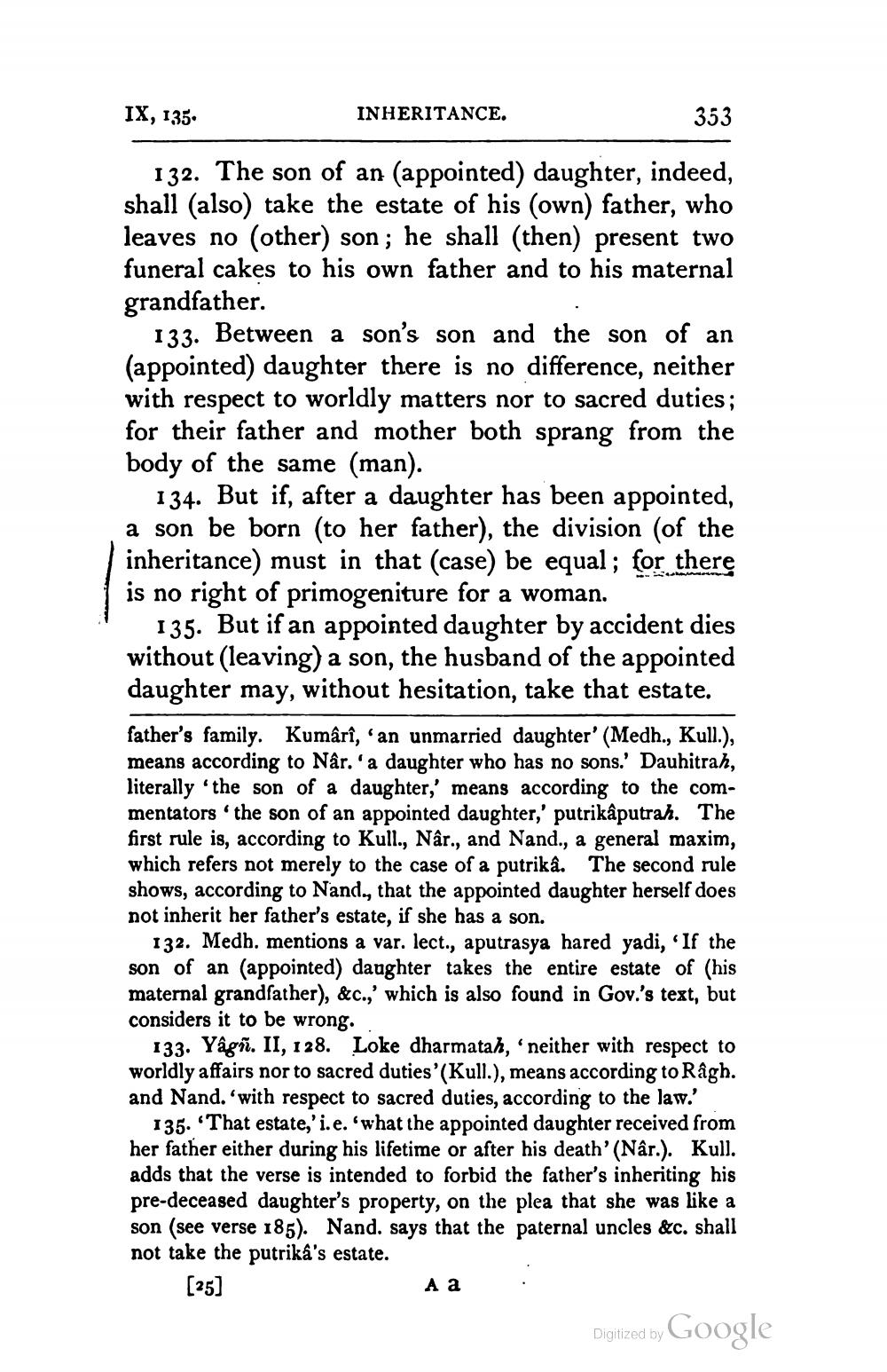________________
IX, 135.
INHERITANCE.
353
132. The son of an appointed) daughter, indeed, shall (also) take the estate of his (own) father, who leaves no (other) son; he shall (then) present two funeral cakes to his own father and to his maternal grandfather.
133. Between a son's son and the son of an (appointed) daughter there is no difference, neither with respect to worldly matters nor to sacred duties; for their father and mother both sprang from the body of the same (man).
134. But if, after a daughter has been appointed, a son be born (to her father), the division (of the inheritance) must in that (case) be equal; for there is no right of primogeniture for a woman.
135. But if an appointed daughter by accident dies without leaving) a son, the husband of the appointed daughter may, without hesitation, take that estate. father's family. Kumârî, an unmarried daughter' (Medh., Kull.), means according to Nâr.' a daughter who has no sons.' Dauhitrah, literally 'the son of a daughter, means according to the commentators the son of an appointed daughter,' putrikâputrah. The first rule is, according to Kull., Nâr., and Nand., a general maxim, which refers not merely to the case of a putrika. The second rule shows, according to Nand., that the appointed daughter herself does not inherit her father's estate, if she has a son.
132. Medh. mentions a var. lect., aputrasya hared yadi, 'If the son of an appointed) daughter takes the entire estate of (his maternal grandfather), &c.,' which is also found in Gov.'s text, but considers it to be wrong.
133. Yâgñ. II, 128. Loke dharmatah, 'neither with respect to worldly affairs nor to sacred duties' (Kull.), means according to Râgh. and Nand. with respect to sacred duties, according to the law.'
135. "That estate,' i.e. what the appointed daughter received from her father either during his lifetime or after his death' (Nâr.). Kull. adds that the verse is intended to forbid the father's inheriting his pre-deceased daughter's property, on the plea that she was like a son (see verse 185). Nand. says that the paternal uncles &c. shall not take the putrika's estate.
[25]
Aa
Digitized by
Digitized by Google




